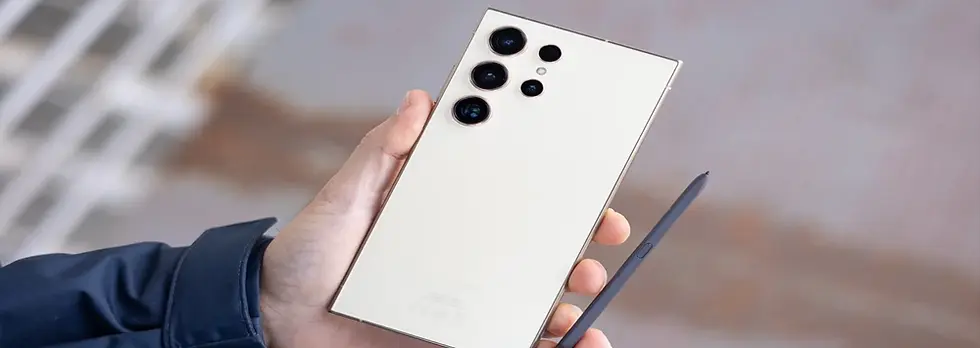Dish makes progress at national retail but has long way to go — Moore
- FierceWireless.Com

- Jul 11, 2023
- 5 min read

National retail has always been important for the wireless industry. I've provided a rundown of activity in national retail below. But first, let's take a look at what's happening in the space with Boost Mobile and Boost Infinite.
Wireless is a scale game. Dish Network is building a nationwide network and will need tens of millions of subscribers to justify building a national network.
The company is taking steps at national retail. When Dish Network acquired Boost Mobile, the carrier’s phones were sold only at Walmart among national retailers. Now, phones from Boost Mobile are sold at Best Buy, Target and Kroger-operated grocery stores. SIMs were launched at 7-Eleven, as Boost Mobile announced in December. In April, there was an announcement about a SIM launch at Walgreens. In May, there was another press release about a launch of SIM sales at stores operated by Dollar General and Kroger.
This expansion is a needed step forward, but there are two negative factors. First, most of these channels are very minor in terms of wireless activations as they lack the staffing, signage and marketing power seen at Walmart.
Second, the count of Boost Mobile stores is falling. Yes, there are roughly 4,000 Boost Mobile stores, and these are beehives of sales and activations. However, Wave7 Research recently reported that more than 400 such stores closed between November and June.
And what about Boost Infinite and Gen Mobile?
Now that Dish Network has relationship with retailers, and there is staffing to manage these relationships, Boost Infinite and Gen Mobile could be launched as well at Walmart and at other retailers. I am not aware of any efforts in the works, but once again, being a national carrier is a scale game.
Boost Infinite needs to have stores. Detailed plans to launch stores became clear at the All Wireless & Prepaid Expo in August 2022, but those plans were scuttled. There is a trial of Boost Infinite sales at a Boost Mobile store in Colorado, but there are more than 18,000 Verizon, AT&T and T-Mobile stores in operation.
Advertising is also needed
Boost Mobile continues with TV and radio advertising and has increased its online efforts. There is no need to build a brand, just a need to reinforce a well-established and respected brand, while building awareness of top offers.
Boost Infinite recently launched TV advertising. I have been critical of Boost Infinite as a postpaid brand, but that appears to be the company’s chosen brand. There is a need to build brand equity and to differentiate, first and foremost. As distribution becomes clearer, the ads will need to clarify where and how Boost Infinite can be purchased.
And what about Gen Mobile?
Gen Mobile has been making gains in the multi-carrier prepaid dealer channel, as reported by BestMVNO recently. In fact, the Wave7 Momentum Award for 2Q23 went to Gen Mobile, as it was sold in one-third of multi-carrier stores surveyed in May and June, up from being barely mentioned as 2022 began.
For Boost Mobile and Boost Infinite, I would say: All channels are not equal. I am skeptical about channels like 7-Eleven, Walgreens and Dollar General where there is no staffing knowlegeable about wireless and where Boost Mobile has no phones. These channels are not top-of-mind for wireless customers. This is not true of Walmart, Target and Best Buy, where Boost Mobile phones are already sold and where Boost Infinite and Gen Mobile potentially could be sold.
Best Buy
Unfortunately, Best Buy is slipping as a player in the wireless market. Best Buy Mobile was a variant of Best Buy that focused on mobile sales. The format had 257 stores, but those stores all closed in 2018.
Best Buy announced in March that it would be closing 20-30 stores, and Wave7 Research has reported that the amount of staff and effort allocated to wireless activations is in decline. The retailer in June halted activations of most of its prepaid brands, although this is not true of Best Buy-owned Lively and Google Fi Wireless. Wave7 Research has been reporting that T-Mobile has a diminishing presence at Best Buy. A large T-Mobile display was removed from a California Best Buy visited days ago, and this is likely to happen broadly. Minor T-Mobile signage remains at such stores.
Target has also been slipping as a venue for wireless activations, but this is a headline from 2020. In the past, “black shirts” from MarketSource were broadly present at Target stores. These reps – then as now – are focused on wireless activations, but since 2020, they have only had a presence at roughly 800 Target stores, with many stores getting signage advising that the store no longer does wireless activations.
This does not mean that wireless sales are dead at Target. Third-party dealers are pitching AT&T aggressively at many Target stores, but this presence is hit-and-miss. MarketSource “black shirts” continue to do activations, and 800 stores is clearly a minority, as Target has 1,954 U.S. stores. Consumer Cellular still sells well at Target, but it is more difficult for its customers to get needed help at Target than it was before 2020.
Wireless sales at Costco – back from the dead
Wireless sales at Costco came to an abrupt end in December. Wireless Advocates, a business that had been around for 18 years, had long staffed kiosks at the retailer. At nearly all of Costco stores – numbering 587 currently – there was a kiosk with a Wireless Advocates rep who was selling wireless services. The kiosks were “tripods,” with Verizon, AT&T and T-Mobile all represented and activated at the kiosks.
For weeks, there was no wireless sales activity at the retailer. During the winter, kiosks were revived at many Costco stores, except that they are no longer “tripods.” Some are T-Mobile kiosks, while there are AT&T kiosks at some stores and Verizon kiosks at other stores, as Fierce Wireless reported in June.
Sam’s Club now AT&T-only
In years past, Sam’s Club was a “tripod” also, doing activations for AT&T, Verizon, and Sprint. Now, there are AT&T kiosks at all stores checked and third-party staffers are aggressively pitching AT&T.
Walmart seems to have a winning formula
When I founded Wave7 Research in 2015, Walmart was a non-factor in the postpaid market. Sure, Walmart has long been a powerhouse for prepaid sales, as Straight Talk Wireless had 9.5 million subscribers as of 2021 – and Walmart is the only retailer selling Straight Talk.
In June 2019, Walmart made a major announcement about wireless sales. “With this expansion, more than 3,000 Walmart stores will have dedicated experts in wireless to help customers upgrade their phones and activate new lines with major U.S. carriers,” the retailer said. Wave7 Research has long reported that this addition of dedicated third-party staffing to Walmart’s mobile department has been a success, transforming Walmart from being a backwater in the postpaid market to being a backwater for postpaid sales to becoming a significant factor in postpaid sales.
Before 2019, T-Mobile was not sold at Walmart. Now, T-Mobile and Metro by T-Mobile are both sold there.


















.webp)

Comments